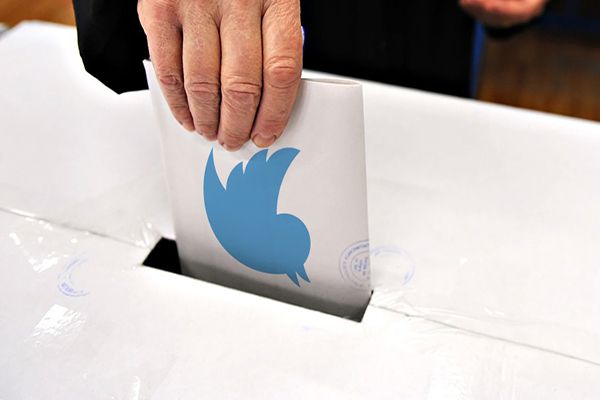As midterm elections take place across the country, Twitter is awash with political commentary of all sorts. Search the name of any politician on the ballot this November to find thousands of typo-laden thoughts, opinions and assertions.
Recently, the social media site has been the battle-ground of many political conflicts, from banning public officials to sharing information on riots and protests. However, Jack Dorsey, the creator of Twitter, intended for the app to be a way for individuals to communicate with small groups of friends. How did the app evolve to be a crucial tool in conversations regarding politics?
Principally, experts say this divergence from friendly chats to planning coups began in the 2008 U.S. presidential election. Former President Barack Obama’s campaign used social media to establish a digital grassroots campaign, connecting individuals across the country.
Soon, other officials saw the value of social media and the usage of Twitter became commonplace for government officials, bureaucrats and political organizations to spread their messages. Now, politicians could put their finger on the pulse of younger voters, exploiting some of the largest consumers of social media content.
Additionally, what set Twitter apart from other voter outreach strategies is that it further democratized the political process; users could interact with public officials, new politicians could kick off campaigns without large advertising budgets, there were almost no barriers to entry and arguably most importantly, users could interact directly with each other.
Anonymously, and from the comfort of their own homes, users could express their opinions and respond to others. The nature of social media ensured that if a user had an unpopular opinion, other users could search through their feed for more reasons to disagree with them. Behind a screen, it is clear how quickly searching for faults in others’ ideology could become a game — and spiral out of control.
On top of that, part of the effectiveness of Twitter as a political tool is algorithmic in nature. Social media apps are programmed to provide the user with similar content to what users have interacted with in the past. Thus, interaction intentionally creates a so-called “echo chamber” where algorithms only present opinions that the user agrees with on their timeline.
Furthermore, as social media influence has greatly expanded in the last few years, politicians and programmers have found ways to micro-target potential electors using their personal data and consumer preferences.
The danger of social media is that it does not require face-to-face interactions, nor does it necessarily require a human conscience. Hence, bots can rule social media without users ever realizing that the opinions they agree with or the ones that anger them to the ends of the political spectrum are inhuman.
Nevertheless, the language people use on Twitter, particularly in the context of politics, cannot be explained by the adverse side effects of programming. The true demarcation of the rise of such jargon is former President Trump’s 2016 presidential bid.
Trump’s tweets were unlike those of other politicians in that he tweeted frequently and used informal language that was often contradictory or lacking in clarity, leaving room for personal interpretation. Whether intentional or not, Trump expertly took advantage of the volatile nature of Twitter, demanding attention from users on all sides of the political spectrum.
Since then, the line between Twitter rants and genuine political change has become blurred. Jokes have become opinions and bots have bolstered extremist tendencies. Twitter has fundamentally changed the nature in which people discuss politics. While it has made these types of conversations more accessible, it has also created an environment where only the most outrageous ideas garner attention.
Just days ago, another factor was added into the equation that could change Twitter’s impact even more. On Oct. 27, businessman Elon Musk, CEO of Tesla and SpaceX, officially purchased Twitter for a whopping $44 billion.
After overpaying for Twitter, Musk is anxious to make sure the site is lucrative. He has promised investors that he will cut costs by laying off workers and began the process immediately upon taking over.
Several of the executives Musk fired were entitled to receive golden parachutes under the merger agreement, but Musk is claiming that they were fired “for cause,” which would relieve him of this obligation.
Additionally, Musk is planned to cut ties with lower-level employees before Nov. 1 to avoid awarding stock grants the employees earned that are scheduled to be awarded on that day. The former employees will likely mount legal challenges against Musk to collect the compensation that they believe they deserve.
Given Twitter’s role as a source for news and sharing political opinions for better or worse, it is unclear how the change in ownership of such a potent political tool will further alter the landscape of discussions surrounding government.
With an unknown future and a tumultuous past, Twitter discourse is an incredibly nuanced issue that cannot be resolved by a change in leadership.
